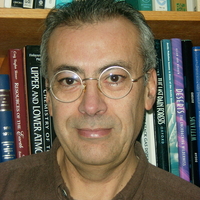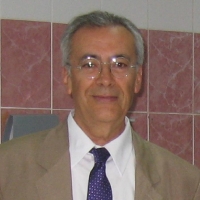By Aslam Khalil. 3rd May 2012. Dear Methane Research Colleagues The next meeting of the CCSSG is in 3 weeks. The members have been asked to summarize the important open issues in their areas of representation. For me this is methane, CO and hydrocarbons, which boils down to methane. I am writing to ask you if you have any thoughts you would like me to convey. At the moment I have the following areas that I plan to highlight (I will have maybe 15-20 minutes): 1) Temperature feedback on terrestrial emissions – the idea that the future increases of methane will likely occur from climate feedback rather than increases of direct anthropogenic emissions. These feedbacks are in three areas: Resident soil carbon pool, wetlands (including rice) and the arctic permafrost. All have different mechanisms for release and oxidation is a key player to ameliorate the impact. 2) The role of methane in greenhouse gas trading. How should it be done? 3) The uncertain role of plant emissions (although I will probably skip this and just include it on a list at the end with other possible issues that can be discussed if someone wants). If I get something from you that can be highlighted or mentioned for future discussion, I will add your name and affiliation to the list of contributors. Note that the presentation slides are usually posted by the USGRP on their website and become public information. Please send your comments to my e-mail address: aslamk@pdx.edu
CCSSG
The 2011 US Carbon Cycle Plan
1st January 2012.
Posted by Aslam Khalil
Dear Colleagues, I have recently registered as a member of MethaneNet in the hope that I can be of service to this community. Last year I was given membership in the CCSSG (Carbon Cycle Science Steering Group) which is an arm of the US government’s USGCRP (United States Global Change Research Program). My membership provides a voice for methane research as well as other aspects of the carbon cycle.
The CCSSG meets twice a year in Washington D.C. to provide a link between scientists, policy makers and funding agencies. Its membership reflects this mix. Recently, the USGCRP released the new US carbon cycle plan. My main purpose in writing to you is to inform you of the plan and encourage you to look at it as it may provide benefits in acquiring grants, working with US scientists if you are elsewhere, and possibly providing another context for your research. The plan was purposely crafted to be general and covers wide ranging issues including the role of methane in the carbon cycle and its contribution to global change science. The Plan has a number of key goals: It affirms the need for basic research, expands its scope and recommends priorities. The Plan argues for the integration of human dimensions with the science and technology of global change and encourages plans to manage carbon emissions. Finally The Plan promotes ideas for verifying the results of policies to mitigate global change and providing close links to inform our society of the scientific results.
Electronic copies of “A U.S. Carbon Cycle Science Plan” are available at http://www.carboncyclescience.gov/carbonplanning.php. Printed copies or copies on CD can be requested from the U.S Carbon Cycle Science Program Office; contact Director Roger Hanson (rhanson@usgcrp.gov) or Program Coordinator Gyami Shrestha (gshrestha@usgcrp.gov).
I plan to post relevant updates from the CCSSG meetings on MethaneNet and will be very pleased to take your thoughts or concerns to the CCSSG. My contact information is listed below:
M.A.K.Khalil, PhD Professor Department of Physics Portland State University P.O.Box 751 Portland, Oregon 97207 E-Mail: Khalilm@pdx.edu Phone: (503) 725-8396

